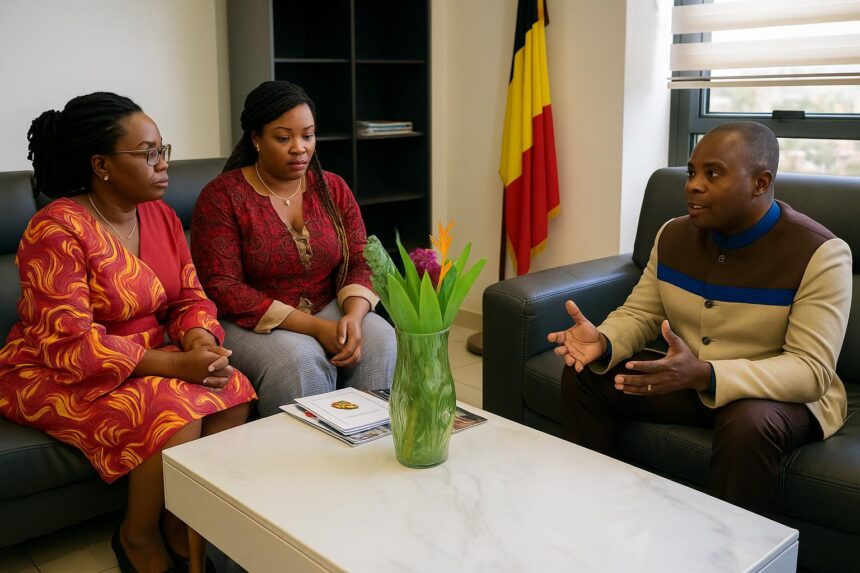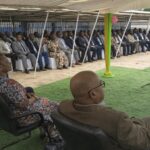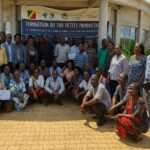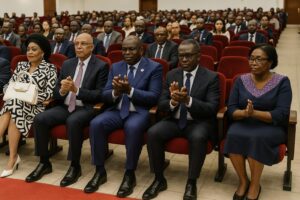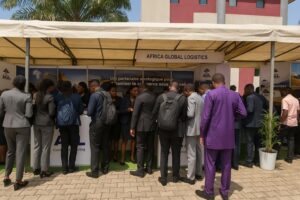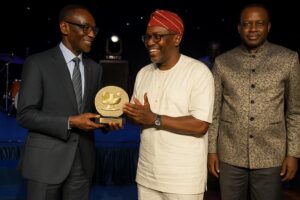Why the FOFE-AC forum matters
The Federation of Organisations of Women Entrepreneurs in Central Africa, better known as FOFE-AC, is preparing a high-profile forum that promises to bring hundreds of business leaders to Brazzaville. The event focuses on turning brilliant ideas from women-led firms into sustainable, job-creating companies across the region.
- Why the FOFE-AC forum matters
- Feciac vice-president joins the conversation
- Jacqueline Tientcheu seeks durable alliances
- FIGA opens the financing door
- Media muscle from Télé Congo
- Setting the stage for inclusive growth
- Economic context drives urgency
- Voices from the ground
- Next steps toward the forum
- A regional vision takes shape
- Government alignment and goodwill
- What success could look like
- Citizen expectations remain high
- An invitation to the diaspora
- Countdown to Brazzaville
In a city where informal trade still dominates household income, the conversation around the forum instantly caught the attention of decision-makers. Analysts note that a stronger female business ecosystem could accelerate Congo’s economic diversification and cushion families against fluctuations in oil revenue.
Feciac vice-president joins the conversation
Daniel Abaté, vice-president of the Central African Economic Growth and Intelligence Council, told reporters he wants a front-row seat at the gathering. “Participating will amplify the projects we already run and open new windows across the entire CEEAC zone,” he said after meeting FOFE-AC’s delegation.
Mr Abaté also chairs the organising committee of the Central African Economic Forum, Feciac. By aligning his network with FOFE-AC, he hopes to create a continuous calendar of business meetings that keep investors’ eyes on Congo-Brazzaville rather than on competing hubs in the sub-region.
Jacqueline Tientcheu seeks durable alliances
At the heart of the roadmap is Jacqueline Tientcheu, FOFE-AC president and seasoned Cameroonian entrepreneur. Her tour of Brazzaville included stops at key institutions, each aimed at removing practical barriers female founders face, from collateral requirements to marketing gaps.
“We are not asking for privilege but for a chance to compete on equal footing,” she explained, insisting that public and private actors move beyond slogans to measurable commitments, including blended finance and dedicated procurement quotas for women-owned suppliers.
FIGA opens the financing door
One of the most concrete pledges came from Dayi Allaire Branham Kintombo, director general of the Support, Guarantee and Facilitation Fund known as FIGA. He confirmed negotiations for a partnership accord that would channel credit lines and risk guarantees directly to firms certified by FOFE-AC.
According to preliminary figures exchanged behind closed doors, the scheme could free up several billion CFA francs over three years, targeting agribusiness, digital services, fashion and eco-tourism—sectors where women already display strong market intuition but often lack long-term capital.
Media muscle from Télé Congo
Visibility remains another decisive lever. André Ondélé, director general of state broadcaster Télé Congo, committed to extensive coverage before and during the forum. Live panels, entrepreneur profiles and prime-time round-tables are slated to run across television, radio and social media feeds.
Mr Ondélé believes the content will resonate far beyond the capital. “When young girls in Impfondo or Dolisie see local women signing export contracts, horizons expand,” he remarked, arguing that representation can be as transformative as credit when it comes to shifting mind-sets.
Setting the stage for inclusive growth
The series of meetings closed with a joint communiqué highlighting shared objectives: building capacity through training, facilitating cross-border trade certificates and promoting technology transfer. Each institution agreed to appoint focal points to speed up decision-making ahead of the forum.
Observers welcome the coherence of the plan. Unlike one-off conferences that fade after the group photo, the Brazzaville roadmap links policy, finance and storytelling, an approach experts say improves the odds that small firms survive their risky first five years.
Economic context drives urgency
Congo-Brazzaville’s economy is rebuilding momentum after pandemic shocks and fluctuating commodity prices. Authorities have placed entrepreneurship at the centre of the 2022-2026 National Development Plan, with a specific focus on women and youth to cut a stubborn 19 percent unemployment rate.
The FOFE-AC forum dovetails neatly with that agenda. By inviting regional investors to Brazzaville, organisers hope to attract fresh liquidity without over-relying on public spending, thereby supporting the government’s fiscal consolidation efforts endorsed by international partners.
Voices from the ground
Marie-Noëlle Mavoungou, who runs a small cosmetic brand in Pointe-Noire, says access to a guarantee fund could triple her production. “Banks like my turnover, but they still ask for land titles I do not have,” she explains. A FOFE-AC certification, combined with FIGA backing, could tip the balance.
Meanwhile, Alexis Mabiala, an economist at the University of Brazzaville, argues that empowering women entrepreneurs has a multiplier effect. “They reinvest up to ninety percent of income in family welfare—health, schooling, nutrition—so society benefits immediately,” he said during a local radio interview.
Next steps toward the forum
Technical teams from FOFE-AC and FIGA meet again next month to finalise the agreement text. Parallel sessions will map priority sectors and identify at least fifty scalable women-led businesses eligible for showcase pitches during the forum.
Organisers are also securing discount airfares and hotel packages to make the event accessible to founders from remote provinces and neighbouring countries such as Gabon and the Central African Republic, reinforcing Brazzaville’s role as an emerging MICE destination.
A regional vision takes shape
Looking beyond the immediate event, Daniel Abaté and Jacqueline Tientcheu are drafting a memorandum to establish a Central African women’s business observatory. The body would track policy impacts and publish annual scorecards, offering a data foundation for future reforms.
Such monitoring could appeal to development partners, including the African Development Bank, which has signalled interest in evidence-based gender programmes. Local analysts say reliable metrics will help maintain momentum once media attention fades.
Government alignment and goodwill
Officials close to the Ministry of Small and Medium Enterprises applaud the initiative, noting it aligns with President Denis Sassou Nguesso’s emphasis on inclusive growth. They point to ongoing reforms that streamline company registration via a one-stop digital portal, reducing red tape for aspiring founders.
While the forum is privately driven, observers underline the value of political support in reassuring lenders and international guests that agreements signed in Brazzaville will enjoy a stable, predictable environment.
What success could look like
Stakeholders envision tangible outcomes: new export contracts, bankable business plans, and at least five cross-border joint ventures launched within a year. Achieving those targets would validate the forum’s premise that female entrepreneurship is not a niche theme but a core growth engine.
By 2026, organisers hope the initiative will have generated thousands of jobs and inspired a follow-up edition rotating through other CEEAC capitals, creating a virtuous circle of regional trade and collaboration.
Citizen expectations remain high
Outside the conference rooms, ordinary Congolese track these developments closely. Rising food and transport costs amplify demand for local solutions that create income. Social media users increasingly call for transparent reporting so promises made in Brazzaville translate into village-level change.
Civil-society groups are preparing scorecards of their own, planning to measure how many loans reach women traders in markets such as Ouenzé or Tié-Tié. For them, success will be counted in school fees paid and medical bills covered, not merely in press releases.
An invitation to the diaspora
The organising committee is extending invitations to Congolese women entrepreneurs abroad, particularly in Paris, Montréal and Johannesburg. Their participation could unlock mentorship channels and technology partnerships, bridging local ambition with global know-how.
Diaspora interest is already visible on professional networks, where Congolese founders post plans to attend and offer insights on export standards, digital marketing and scalable packaging solutions.
Countdown to Brazzaville
With logistics, financing and media coverage converging, the countdown to the FOFE-AC forum intensifies. Registrations open online next week, and a public launch ceremony is scheduled at the Palais des Congrès.
For Daniel Abaté, the goal is clear: “We want Brazzaville to be the capital of women-powered growth in Central Africa.” The months ahead will test how words turn into contracts, credit and, ultimately, opportunity for thousands of aspiring entrepreneurs.

